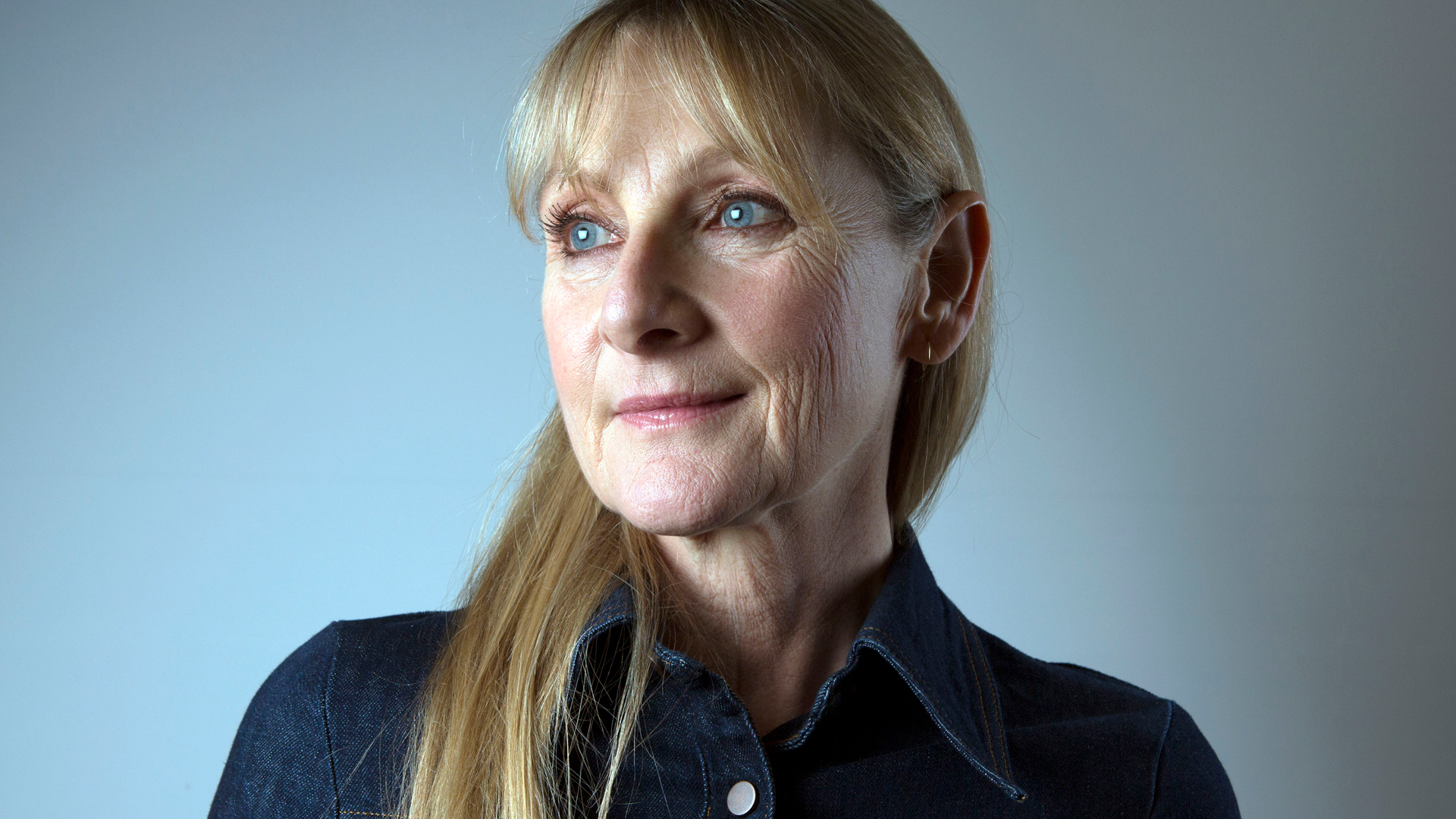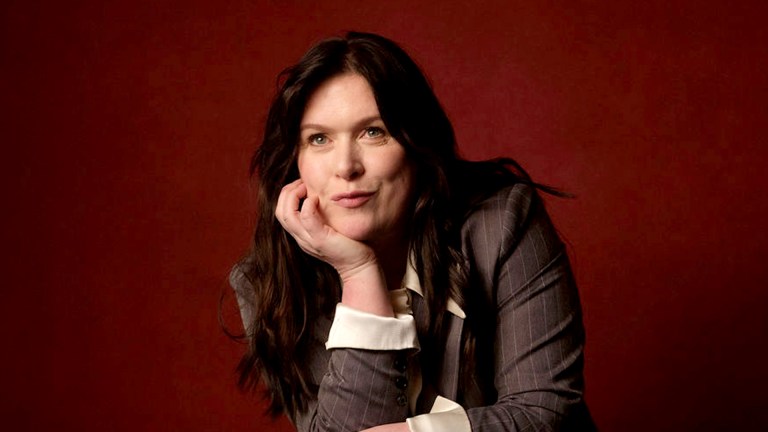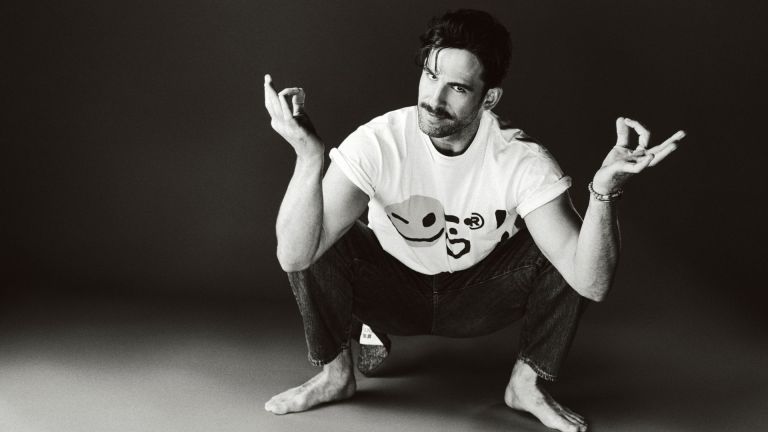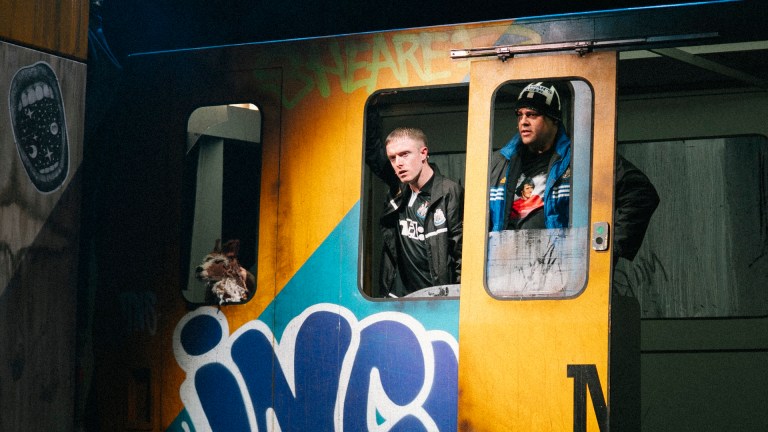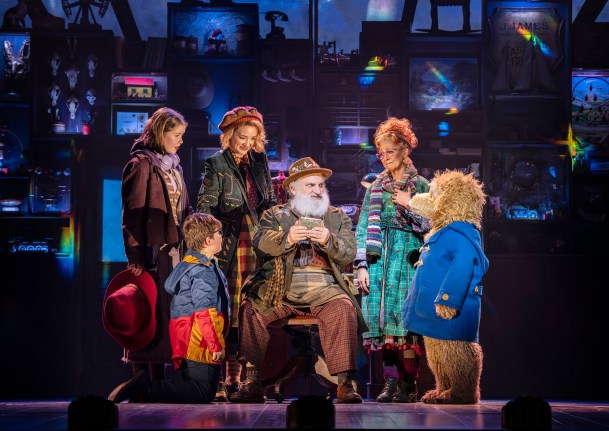Even though it is an adaptation of Sophocles’ Philoctetes, we are contractually obliged to ask what it says about these times.
Just like with the political theatre of 70s and 80s that was so vital in the UK, these times are bearing down on our writers. And they are coming up with a response to the world that we find ourselves living in. I play Philoctetes, who – as a man with a wound – arguably stands in for a world with a wound or a community with a wound. How do we bear that? How do we resolve that? How do we express our grievance and frustration? How do we find a way of moving on? How do we find a way of coming together? All of that is in our play.
https://twitter.com/kaetempest/status/1422869678561574919?s=21
It’s only a few weeks after the grievance and frustration of some football fans turned into something much darker and more violent.
The parallels haven’t escaped any of us in our rehearsal room.
You’ve performed work by some of the greatest writers. How does it feel to add Kae Tempest to that list?
Advertising helps fund Big Issue’s mission to end poverty
Kae is one of the most incredible writers, performers, musicians in the UK. I knew of them before, but wasn’t as up to speed as I have subsequently become. And for someone so young… I would say Kae is a modern philosopher – the way they think, their view of the world. They’re in the rehearsal room with us all so there is this continual conversation. It’s really profound, it’s very thought provoking and very entertaining.
Paradise is performed by an all-female cast, does that bring a new lens through which to examine male anger?
Traditionally the play is three soldiers and a chorus of sailors, who were men as well. What’s interesting is that the female voice expressing what is male pain and grief means you end up with something universal. Kae has done this adaptation, there is a male voice inherent in the play, and there is a female voice taking it out into the world – and I think something rather extraordinary will happen when it lands with the audience. It’s difficult to articulate, but it’s like this cocktail of voices ends up being just people rather than genders.
Theatres and venues are struggling, funding for arts education is being drastically cut – how important is it for the arts in this country to prevail?
I think that we actors, writers, ‘artists’ can be regarded as easy targets for being irrelevant and frivolous and silly. But we’re there to hold a mirror up to the society and world in which we live. The civility and care and heartbeat of a society can be judged by the value with which the artistic community is held and supported. The places where people gather to listen to music, dance, watch films, see plays, take part in discussions – all of those things that are communal and vital – have been really knocked. I feel that very strongly, that it’s really important the artistic community in the UK finds our way through this.
Working with Kae, how important do you feel they are as a cultural voice?
Advertising helps fund Big Issue’s mission to end poverty
The 80s was a really tempestuous time to be young and alive – it felt really important and vital to me to be part of a community that was having these debates and exchanges and putting stuff out there. And now Kae is part of a thrilling new generation. They are so vital and important to the conversation that needs to happen in the UK at the moment. As an older member of society, it is a privilege to connect with younger people who have something vital to say. It’s really important for our generation to keep listening.
What are your big issues at the moment?
I feel enormous anxiety about finding the way we can connect as human beings. Differences are to be celebrated – but it’s also about maintaining and celebrating the things that connect us and finding ways we can come together in spite of the way that we’re governed and the way the media would find ways to
split us apart.
Paradise by Kae Tempest, a new version of Philoctetes by Sophocles, opens at the National Theatre on August 4.
